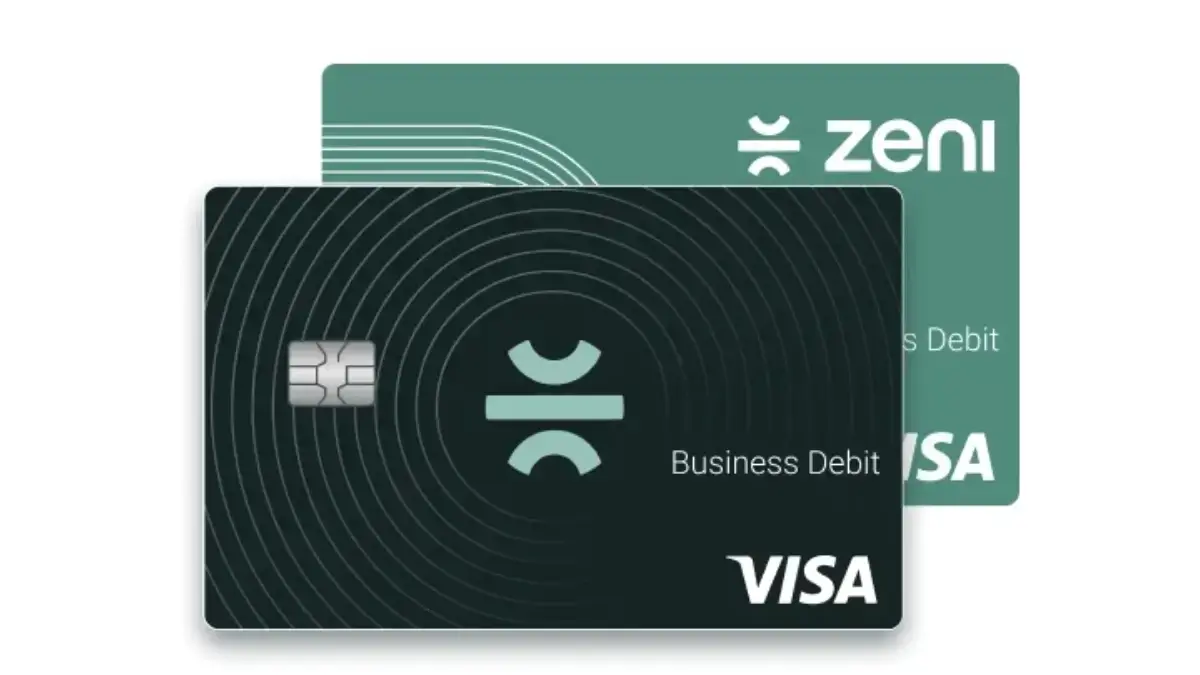
Kudos has partnered with CardRatings and Red Ventures for our coverage of credit card products. Kudos, CardRatings, and Red Ventures may receive a commission from card issuers. Kudos may receive commission from card issuers. Some of the card offers that appear on Kudos are from advertisers and may impact how and where card products appear on the site. Kudos tries to include as many card companies and offers as we are aware of, including offers from issuers that don't pay us, but we may not cover all card companies or all available card offers. You don't have to use our links, but we're grateful when you do!
Top 10 Tips for Earning More Credit Card Points (2025)
July 1, 2025


Collecting credit card points can feel like a slow game, but with the right strategies, 2025 can be your most rewarding year yet. Whether you’re aiming for a free flight or just extra cash back, these ten tips will help you earn points faster without extra spending. The goal is to make every dollar count.
We’ll cover everything from optimizing your spending categories to leveraging sign-up bonuses and using smart tools. By following these tips (and with a little help from Kudos, your free personal financial companion), you can watch your points balances climb dramatically. Let’s dive into the top 10 tips to supercharge your point earnings.
1. Align Spending with Bonus Categories
Identify your credit cards’ bonus categories (e.g., 3× on travel, 4× on dining) and always try to use the card that offers extra points in the category of your purchase. If you have multiple cards, it might help to label them (e.g., write “gas” on the one with gas rewards). Using the wrong card (like getting 1× instead of 4×) is a missed opportunity. Category bonuses are one of the simplest ways to multiply points on everyday spending.
2. Maximize Sign-Up Bonuses
Sign-up bonuses can yield tens of thousands of points at once. Plan to get a new card when you have large unavoidable expenses (holidays, home improvement, etc.) so you can meet the required spending easily. Hitting a bonus could be worth 5–10× months of normal spending in points. Just don’t open too many cards at once; space them out to manage spending requirements comfortably.
3. Utilize Quarterly 5% Rotating Categories
If you have cards like the Chase Freedom or Discover that offer rotating 5% categories each quarter, activate those categories and use those cards when the 5% categories apply. For example, if groceries are 5% this quarter, do your grocery shopping on that card (instead of the usual 1-2% you'd get elsewhere). Set a reminder to activate new categories every 3 months so you don’t miss these high-earning periods.
4. Add Authorized Users (Strategically)
Adding a trusted family member as an authorized user on your card can help earn points on their spending too. Some issuers even give a small bonus for adding an authorized user who makes a purchase. Just be sure the authorized person uses the card responsibly, since ultimately you are responsible for payments. This strategy basically lets you funnel more of your household spending onto a single rewards card to earn points faster.
5. Use Shopping Portals for Online Purchases
Before you click “Checkout” at an online store, check if that retailer is on a credit card issuer’s shopping portal or a cash back site. By starting your shopping through portals like Chase Ultimate Rewards Mall, Amex Offers, or sites like Kudos, you can earn bonus points or cash back from the portal, on top of what your credit card earns. For example, a portal might give you an extra 3 points per dollar at a department store; combined with your card’s 2× points, that’s 5× total. It’s an easy win for something you were buying anyway.
6. Take Advantage of Referral Bonuses
Many card programs offer referral bonuses. If a friend or family member needs a new card, refer them through your link. You could earn a hefty bonus (often 5,000 to 20,000 points) when they get approved. In 2025, some issuers capped how many referral bonuses you can get per year, but if you have a big social circle, those points can add up. Just be sure the card is truly a good fit for the person – never push unwanted credit cards on someone.
7. Pay Your Bills (and Rent) with a Credit Card
Look for opportunities to pay bills with your credit card, especially ones you might not have thought of. Some rent payment services (for example, Plastiq in the past or new fintechs) let you pay rent with a card for a small fee – this can be worth it if you’re working on a sign-up bonus or if the points earned exceed the fee value. Similarly, certain insurance, utility, or tax payments can be made with a credit card. Make sure any processing fee is reasonable relative to points earned; sometimes it’s worth it, other times not. Crunch the numbers first.
8. Leverage Credit Card Deals and Offers
Your card may have targeted offers: Amex Offers, Chase Offers, BankAmeriDeals, etc. These give bonus points or statement credits for spending at specific merchants. Check your account online or in the issuer’s app regularly and activate the offers that make sense for you. For instance, get an extra 4,000 points for spending $200 at a certain store. These promotions turn planned purchases into extra points bonanzas.
9. Pool Points with Family (Where Possible)
Some programs allow families or spouses to pool or transfer points internally. For example, Chase Ultimate Rewards lets you combine points with a spouse’s account. If one family member has a premium card that makes points more valuable (for example, unlocking better travel redemptions), transfer the points there. Pooling can prevent small points balances from being orphaned and can supercharge redemptions by consolidating into one account.
10. Use a Tool Like Kudos for Recommendations
Keeping track of all these tips can be daunting, but technology can simplify it. Kudos is a free financial companion that acts as a smart wallet for your cards. It will recommend the best card to use for each purchase (so you never miss category bonuses), alert you about expiring offers or points, and even automatically apply any extra cash back from stores (giving you up to 2-3× more rewards by leveraging their partnerships).
Essentially, Kudos ensures you’re always maximizing points without having to remember every rule yourself. It’s like having an expert on hand to remind you, “Hey, use the Travel card for this flight purchase to get 3× points” or “Activate this offer for 2,000 bonus points at Amazon.” By using Kudos, you can effortlessly follow many of the tips above and earn points on autopilot.
The Bottom Line
Earning more credit card points in 2025 comes down to being strategic and taking full advantage of what’s available to you. From everyday habits (using the right card) to one-time opportunities (big welcome bonuses, referrals), you have many ways to accelerate your points. Even implementing a few of the tips above can noticeably boost your reward balances. Remember to stay organized—maybe a note or an app to track everything—and always pay your cards in full so interest doesn’t eat away at your reward value. With these tips and a smart companion like Kudos by your side, you’ll be booking trips or cashing in rewards in no time. Happy point earning!
Tips to Earn More Credit Card FAQs (2025)
Will opening new credit cards for bonuses hurt my credit?
Opening new cards can cause a temporary dip in your credit score due to hard inquiries and the reduced average age of accounts. However, if managed responsibly, the effect is usually small and short-lived. To minimize impact, space out applications (e.g., one every few months), keep old accounts open, and maintain low balances. In the long run, having more available credit and a record of on-time payments can actually help your score. So, grabbing a few well-timed cards for bonuses is fine as long as you’re prudent.
What’s the benefit of using a shopping portal versus just the card?
A shopping portal adds extra rewards on top of your card’s points. Think of it as a bonus layer. If your credit card gives 2% back and the portal gives 5% back at the same retailer, you end up with 7% total. It’s essentially free money for clicking an extra link before shopping. Just make sure you remember to go through the portal; using a browser extension or an app that reminds you (like Kudos’s notifier) can help.
Is it worth paying fees to use a credit card for things like rent or taxes?
It can be, but only in certain cases. You have to compare the value of the points earned vs. the fee you’ll pay. For instance, if you’d earn $50 worth of points but the fee is $30, then yes, net $20 benefit. It’s especially useful when pursuing a sign-up bonus where you might value the points more or if those points will get you something like an airline ticket worth a lot. Always do the math, and if the fee outweighs the reward, then it’s not worth it (except maybe as a last resort to hit a big bonus).
How do I keep track of all my credit card tips and offers?
It can get overwhelming. A practical approach is to use a spreadsheet or note listing each card, its benefits, bonus categories, and any current offers. Update it monthly. Alternatively, use apps like Kudos or other reward trackers which centralize this info. Kudos can surface which card to use and what perks you have available, so you don’t have to memorize everything. Also, subscribe to newsletters or follow blogs (like Kudos’ blog or NerdWallet) that remind you of quarterly categories and new deals.
Are there any risks to adding an authorized user to earn more points?
The main risk is that you are liable for any charges the authorized user makes. If they overspend or misuse the card, it could lead to debt or credit score issues for you. Only add someone you trust completely. Another minor consideration: adding an authorized user might affect their credit (it can help them build credit if you maintain a good record, but if something goes wrong, it could hurt). As far as points go, the only “risk” is that some banks have rules against gaming the system (like adding yourself as an authorized user on another of your own accounts isn’t allowed). Stick to genuine use, and it’s a fine strategy.

Supercharge Your Credit Cards
Experience smarter spending with Kudos and unlock more from your credit cards. Earn $20.00 when you sign up for Kudos with "GET20" and make an eligible Kudos Boost purchase.
Editorial Disclosure: Opinions expressed here are those of Kudos alone, not those of any bank, credit card issuer, hotel, airline, or other entity. This content has not been reviewed, approved or otherwise endorsed by any of the entities included within the post.





























.webp)
.webp)
.webp)
%20(1).webp)
.webp)
.webp)


.webp)